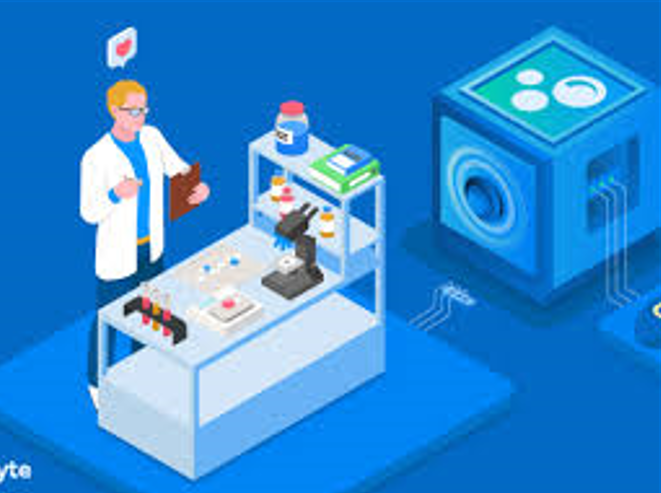Automation has come a long way from simple data entry bots and OCR scanners. Today, businesses rely on Intelligent Document Processing (IDP) to manage information faster, smarter, and more accurately. This technology combines artificial intelligence, machine learning, and natural language processing to extract insights from complex documents from invoices to medical reports.
A recent report by McKinsey found that organizations using AI-driven document automation improve operational efficiency by up to 65%. Across industries, IDP isn’t just reducing paperwork, it's transforming workflows, compliance, and customer experience. Let’s look at how Intelligent Document Processing is reshaping different sectors in real, measurable ways.
Financial Services: Accuracy and Compliance at Scale
In finance, precision is everything. Banks and insurance firms process thousands of documents daily loan applications, KYC forms, tax filings, and more. Manual handling slows down approvals and increases the risk of compliance errors.
With Intelligent Document Processing, financial institutions automate document verification, data extraction, and validation. AI models can identify handwritten notes, detect fraud, and match documents to existing records instantly.
Key benefits for financial firms:
-
Faster loan and claim processing
-
Automated fraud detection through pattern recognition
-
Consistent compliance with GDPR and KYC regulations
-
Real-time data validation and report generation
According to Deloitte, banks using document automation cut processing costs by 60% while improving customer satisfaction significantly.
Healthcare: Streamlining Patient Records and Claims
The healthcare industry is drowning in paperwork — from patient intake forms to lab reports and insurance claims. Intelligent Document Processing simplifies this chaos by digitizing and categorizing clinical and administrative documents.
For hospitals, IDP can extract critical data from scanned prescriptions or handwritten notes and upload it directly to electronic health record (EHR) systems. This reduces manual entry errors, improves data accessibility, and gives clinicians more time to focus on patient care.
Key advantages in healthcare:
-
Secure digitization of medical records
-
Faster claims and billing cycles
-
Improved accuracy in patient data entry
-
Enhanced compliance with HIPAA regulations
Statista reports that nearly 70% of healthcare providers plan to adopt AI-powered document processing tools by 2026 signaling an industry-wide move toward automation and data accuracy.
Manufacturing and Logistics: Efficiency Through Data Visibility
In manufacturing and logistics, every shipment, invoice, and order document counts. Missing or inaccurate paperwork can delay supply chains and disrupt production schedules. Intelligent Document Processing ensures these records are managed, tracked, and verified automatically.
For example, IDP can extract order details from emails, match them with inventory lists, and update ERP systems in real time. This reduces manual bottlenecks and improves visibility across the supply chain.
Use cases in manufacturing and logistics:
-
Automating purchase order and invoice management
-
Tracking shipment and customs documentation
-
Reducing errors in order fulfillment and billing
-
Strengthening supply chain transparency
According to Gartner, over 50% of supply chain leaders plan to integrate IDP with RPA (Robotic Process Automation) to enhance process reliability and scalability.
Legal and Government: Managing Mountains of Documentation
Law firms and government agencies deal with one of the highest document volumes of any sector. Court filings, contracts, land records, and correspondence can overwhelm even the most organized systems. Intelligent Document Processing helps these institutions automate classification, extraction, and secure storage of critical information.
Benefits include:
-
Quicker document retrieval for citizens and legal teams
-
Reduced backlog and administrative costs
-
Improved transparency and compliance with data laws
-
Enhanced searchability for legal research
PwC’s Public Sector Report indicates that document automation can reduce administrative workloads by 35% in government offices allowing employees to focus on service delivery instead of paperwork.
The Future of IDP: Smarter, Faster, and More Context-Aware
As AI matures, Intelligent Document Processing is evolving beyond data extraction. The next generation of IDP tools will understand context — detecting sentiment, intent, and anomalies in documents. Combined with predictive analytics, these systems will flag compliance risks before they occur or suggest optimized workflows automatically.
For enterprises, this means more than just efficiency. It’s about transforming data into intelligence creating a unified, automated information ecosystem that supports real-time decision-making.
Gartner predicts that by 2027, 75% of enterprises will use AI-based document processing to manage unstructured data, compared to less than 20% today. The message is clear: automation is no longer optional it’s a business imperative.
Conclusion
Intelligent Document Processing is revolutionizing how industries handle information. From finance and healthcare to logistics and government, IDP delivers faster operations, cleaner data, and stronger compliance.
In the modern enterprise, data is only as valuable as it is usable and IDP makes it usable instantly. Companies that embrace this technology aren’t just modernizing workflows; they’re future-proofing their entire data strategy.
As businesses race toward a fully digital future, intelligent document processing stands out as the quiet powerhouse that turns documents into decisions.



